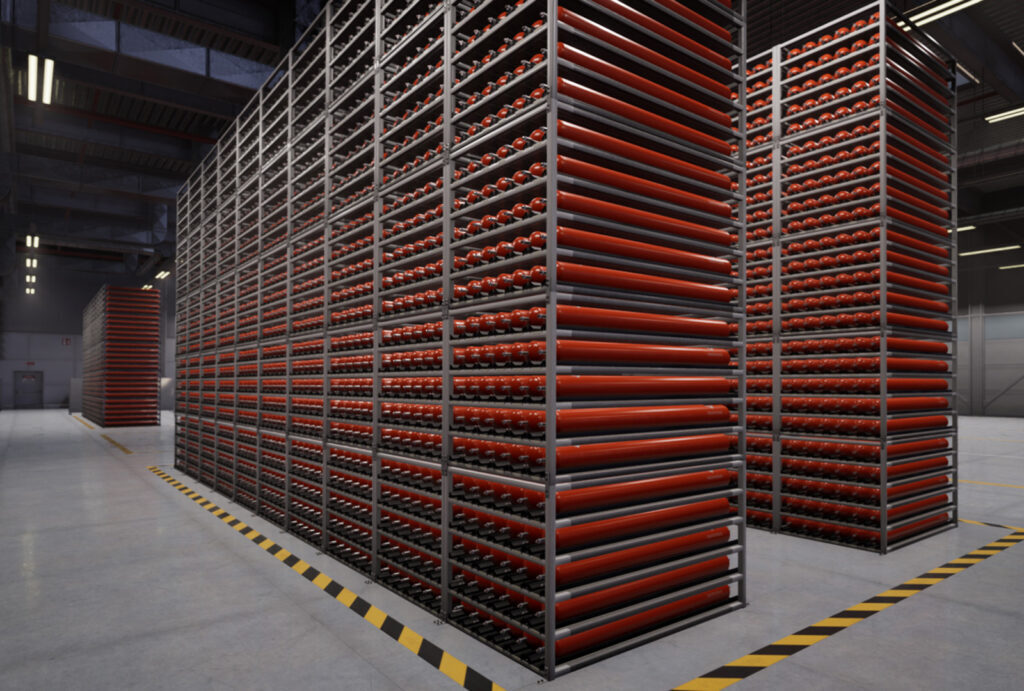EnerVenue, a company pioneering the commercial deployment of high-efficiency metal-hydrogen batteries capable of more than 30,000 cycles, announced that RWE, a leading global energy company, has purchased EnerVenue ESVs for performance testing in a renewable energy pilot project.
RWE is conducting the pilot project at its Milwaukee-area U.S. testing facility, where the company is now cycling EnerVenue’s ESVs to examine the batteries’ performance characteristics. The goals of this pilot project include validating ESV cycling flexibility, charge/discharge characteristics, duration, temperature performance, and efficiency validation. RWE will use the data collected to align EnerVenue’s technology for potential future RWE applications.
ESVs offer the prospect of ultra-long lifespans and efficient, flexible deployments via their highly configurable and scalable product architecture. The batteries are designed to exceed a 30,000-cycle life and cycle up to three times per day without rest. They offer improved safety without the thermal runaway or propagation risk exhibited by incumbent lithium-ion technologies—eliminating the need for expensive, auxiliary fire suppression solutions. ESVs are also more readily recyclable than lithium-ion, making the batteries especially sustainable and environmentally responsible.
Photo of EnerVenue
Press release https://shorturl.at/DlL26
RWE is conducting the pilot project at its Milwaukee-area U.S. testing facility, where the company is now cycling EnerVenue’s ESVs to examine the batteries’ performance characteristics. The goals of this pilot project include validating ESV cycling flexibility, charge/discharge characteristics, duration, temperature performance, and efficiency validation. RWE will use the data collected to align EnerVenue’s technology for potential future RWE applications.
ESVs offer the prospect of ultra-long lifespans and efficient, flexible deployments via their highly configurable and scalable product architecture. The batteries are designed to exceed a 30,000-cycle life and cycle up to three times per day without rest. They offer improved safety without the thermal runaway or propagation risk exhibited by incumbent lithium-ion technologies—eliminating the need for expensive, auxiliary fire suppression solutions. ESVs are also more readily recyclable than lithium-ion, making the batteries especially sustainable and environmentally responsible.
Photo of EnerVenue
Press release https://shorturl.at/DlL26
